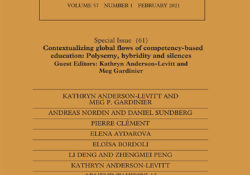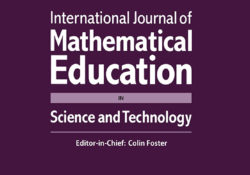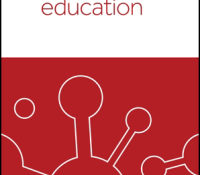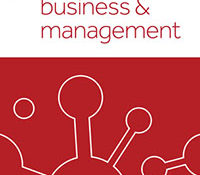tandfonline.com har udgivet en rapport under søgningen “Teacher Education Mathematics”: Abstract The purpose of this study was to examine the current state of integrated science, technology, engineering, arts, and mathematics (STEAM) education. We conducted an extensive review of the literature, followed by document analysis to construct concepts and themes associated with prospects, priorities, processes, and problems of STEAM education. The analysis of STEAM learning concepts from the literature provided three sub-constructs under the prospects – STEAM movement, the purpose of STEAM education, and benefits of STEAM education. The sub-constructs under priorities of STEAM education were – curriculum integration in STEAM and STEAM education as a curriculum reform. The sub-constructs of STEAM education as a process were – the pedagogical process and assessment in STEAM education. The sub-constructs of the problems in… Continue Reading →
Like this:
Like Loading...

tandfonline.com har udgivet en rapport under søgningen “Teacher Education Mathematics”: ABSTRACT ABSTRACT This essay introduces the special issue on competencies or ‘twenty-first century skills’ as learning goals promoted by the OECD and other international organisations. The studies in this issue trace pathways through which competency-based approaches have been incorporated into national reforms, and explore how reform advocates, policy makers, educators, and experts have imagined ‘key competencies’ for compulsory education. Cases examine reforms in particular countries – Sweden, France, Russia, Kosovo, the United States, Uruguay, and China – as well as conceptualisations of competencies, ‘civic competencies’ and ‘global competence’ shaped by international experts. Based on these studies, this essay argues that the concept of competencies, central to the development of the OECD Programme for International Student Assessment (PISA), is a polysemous… Continue Reading →
Like this:
Like Loading...
tandfonline.com har udgivet en rapport under søgningen “Teacher Education Mathematics”: Abstract Abstract Curriculum development has always been dealt as one of the most important areas of language learning and teaching by educational institutions. Null curriculum has been viewed as one of the significant kinds of curriculum types which is important due to its absence, being left out or overlooked but should not be disregarded. For this reason, a 48-item questionnaire for null curriculum in ELT with a special focus on twenty-first century skills was developed and validated by the application of the Rasch model. The Rasch model was employed to decide whether the scores of an instrument are purposive, meaningful and significant. Rasch analysis using Winsteps software version 3.73 was used to determine the dimensionality, use of response category, sample… Continue Reading →
Like this:
Like Loading...
tandfonline.com har udgivet en rapport under søgningen “Teacher Education Mathematics”: Abstract Formulae display:?Mathematical formulae have been encoded as MathML and are displayed in this HTML version using MathJax in order to improve their display. Uncheck the box to turn MathJax off. This feature requires Javascript. Click on a formula to zoom. Abstract A new twenty-first century skills framework and a 19-item scale was developed to bridge the gap between science and practice. A self-reporting 19-item scale was developed to measure twenty-first century skills of faculty and non-faculty staff of agri varsities. A total of 49 items were generated using deduction approach for four skills: communication and collaboration, leadership and responsibility, problem-solving and decision-making, and creativity and innovation. Two content validity techniques were used that reduced the number of items to… Continue Reading →
Like this:
Like Loading...



